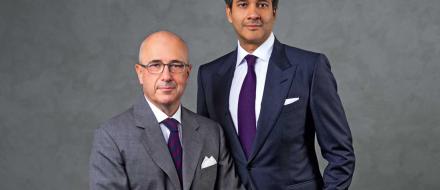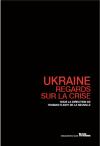Yemen Crisis: Tribes, Not Countries Are at War
The reality is tribal. There is a Shiite axis that is emerging. It is tribal and religious compared to other Sunni axis, also religious and tribal.
25 years ago Yemenites gained some peace by merging two parts of the country, namely North Yemen and South Yemen. Now Yemen is one of the big trouble spots in the region with incredible accumulation of weapons in this desert land. And Yemenites know how to use arms perfectly. They are in a fiercely atrocious war. Houthis and Zaidi Shiites swarm into a region which is considered one of the best irrigated among Arab countries. Yemen can control the flow of oil passing through the Red Sea which makes it a coveted cake for all the major powers of the world. The United States were involved in Yemen affairs several times because that country supported Saddam Hussein excluding only annexation of Kuwait.
Arnaud Leclercq, an expert on the Middle East and well-known banker, Doctor of geopolitical sciences, discussed the Yemeni problem with Alexander Artamonov , editor-in-chief of www.valdaiclub.com website.
Speaking about 25 years of neighborhood between Saudi Arabia and united Yemen, Arnaud Leclercq pointed out that Yemen was always unstable, but after the reunification it became a much more unsustainable country. What matters and is neglected by many analysts, particularly in case of Iraq, which is right next door, is the importance of the tribes. Yemen shows it perfectly. This means that beyond the map and drawn borders that we know today, the most important thing is how these tribes live together, what are the existing and ruined alliances, what are political, religious or commercial interests of tribal leaders.
According to Leclercq, everything what can be said about political borders or some more or less stable regimes, in reality is eternally changing situation when a particular neighboring state encourages its allies. The reality is tribal. It was and still it is today. Only from this point of view we can better understand Shiite rebels who are now in the south-west of Yemen, and who are allies of these tribes. In fact, we can say that rebels are supported by Iran. But beyond that, there is a Shiite axis that is emerging. It is tribal and religious compared to other Sunni axis, also religious and tribal.
These alliances are made and unmade at the mercy of time and in recent years there was a relative stability in Yemen. But throughout this period lava continued to boil, readying for a new explosion not only in Yemen, but in a number of neighboring countries, said Leclercq.
Commenting the discussion, Alexander Artamonov pointed out, that the Yemenites were killing each other like long time ago French and Germans or Poles and Russians, who fought for centuries in religious wars, for territorial conquests, in dynastic quarrels. The problem is that developing nations have nowadays access to heavy armaments which in principle must be reserved to already mature minded nations. Yemenites fought riding camels and outdrawing their swords, now they have armored guns. We must prevent them from the access to heavy weapons. Unfortunately the great powers will not follow that way. For oil and control of the Gulf and the Red Sea they are ready to do everything possible, and any attempt to stop heavy arms supplies to the region still remains a wishful thinking.













